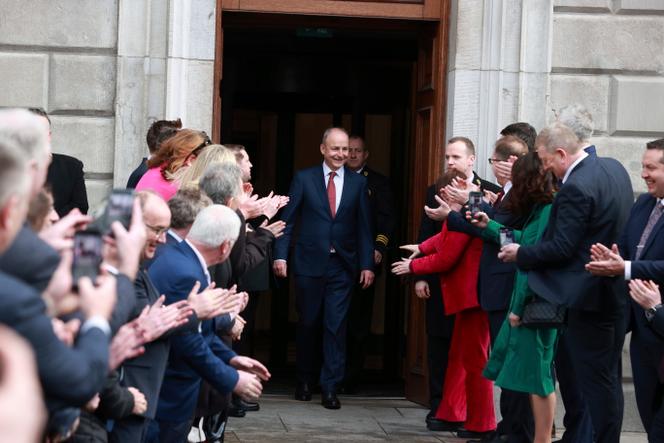
The Irish parliament on Thursday, January 23, backed Micheál Martin to become the country’s next taoiseach or prime minister, a day after a bitter row had delayed the vote.
Irish parliamentarians voted 95 to 76 in support of the nomination of the Fianna Fáil leader, one day after chaotic scenes disrupted the process and resulted in the suspension of the Dáil. Martin was appointed along with government ministers after overnight talks to break the deadlock over speaking rights.
“It is a sad development in many parliaments in the world that they have become more angry and divisive,” Martin said in a speech to the Dáil, the name for the Irish parliament. “They have become forums dominated by the inflated rhetoric of demonstrations rather than a place where different groups can argue in good faith and respectfully disagree,” he said, without directly referencing the events of Wednesday.
Martin had been due to be nominated and elected Wednesday as taoiseach – the Irish name for the prime minister – ahead of a vote in the Dáil that had been seen as a mere formality. The experienced 64-year-old, whose center-right Fianna Fáil party won most seats at a general election in November, had steered the formation of a three-way centrist coalition.
Two suspensions of parliament
However, amid raucous exchanges in the chamber, opposition parties, led by the Dáil’s second largest, the leftist-nationalist Sinn Féin, forced two suspensions of parliament before it was eventually adjourned on Wednesday for the day.
“What we witnessed today was the subversion of the Irish constitution,” Martin, who also served as taoiseach between 2020 and 2022, told reporters late Wednesday. “This is the first time, I think, in over 100 years, that the Dáil has failed to elect a government to fulfill its constitutional obligation,” he added.
The appointment of outgoing taoiseach Simon Harris, 38, as deputy prime minister was also delayed. He leads the center-right Fine Gael, which came third in the election.
Wednesday’s chaotic scenes were “utterly farcical,” said Harris earlier, describing the Dáil disruption as “stunt politics.”
Help us improve Le Monde in English
Dear reader,
We’d love to hear your thoughts on Le Monde in English! Take this quick survey to help us improve it for you.
Take the survey
Fianna Fáil and Fine Gael combined – who led the previous government with the support of the Green Party – fell short of a majority in the 174-seat parliament at the November 29 vote, triggering inter-party coalition talks. The two parties, who have governed in turn since Ireland gained independence from Britain over a century ago, agreed, along with a group of independent lawmakers last week to make up the coalition’s third leg.
Yet Sinn Féin and other opposition parties have angrily objected to several of the pro-government independents being granted speaking time allocated to the opposition.